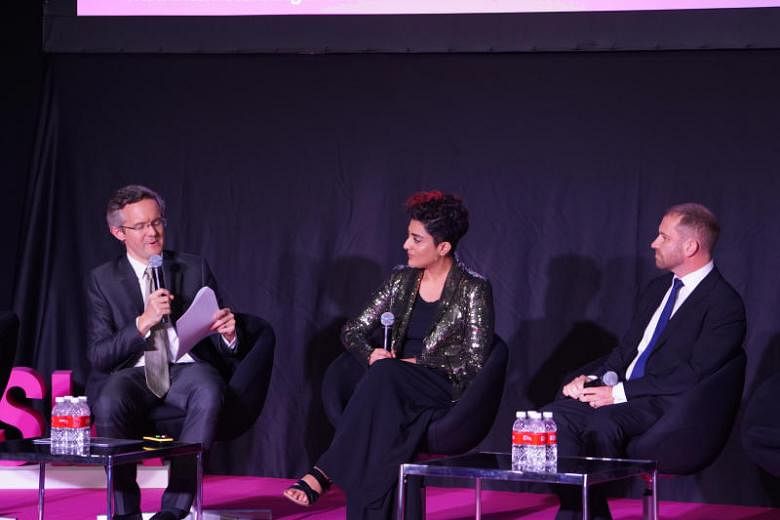SINGAPORE - Legislation has to keep up with technology's increasing intrusion into citizens' lives to safeguard against potential abuse of private data, and governments have an important role to play as stewards of this emerging space.
This was the key message from panellists on the first day of the Internet of Things (IoT) Asia conference on Wednesday (March 27).
Understanding rights and the consequences of sharing personal data across a wide network of connected devices - the Internet of Things - is a big burden that should not be placed on consumers and citizens, said Saadia Muzaffar, tech entrepreneur and founder of TechGirls Canada, an organisation which champions the need for women in tech.
"We have international standardisation across frameworks for many things. You might not know anything about architecture but you don't expect when you walk into any building today for the floor to buckle under your feet," she said.
"You always need a layer of public stewardship to provide that trust."
Fellow panel member and dean of the National University of Singapore's law faculty Simon Chesterman likened the opacity of the IoT to that of the licence agreement consumers get when buying a new phone.
"Who reads all the terms and conditions (of the agreement) when buying an iPhone or Samsung phone? I don't and I teach data protection," he said.
"It's unrealistic to think people will read and I do agree there needs to be an accountability-based data protection legal framework (for companies holding personal data)."
This year marks the sixth edition of IoT Asia, which is organised by SingEx Exhibitions and the Singapore Industrial Automation Association. Over 6,000 international delegates are expected to attend the conference at the Singapore Expo which ends on Thursday.
In his opening speech, Minister for Foreign Affairs and Minister-in-charge of the Smart Nation initiative Vivian Balakrishnan also underscored the importance of revising legislation in light of developing big technology trends.
"We need to rethink our rules and regulations in the IoT field. As more and more machines become smaller, smarter and connected, and as services overlap, our rules and regulations must keep up," said Dr Balakrishnan.
"The Government has to adapt and be prepared to change policies and rules ruthlessly in order to cope with this digital imperative."
He drew attention to a drowning detection system that is expected to be introduced at 28 public swimming pools next year as well as the National Environment Agency's gravitrap surveillance system for detecting Aedes mosquitoes as examples of Smart Nation initiatives intended to improve citizens' quality of life.
Building trust and legitimacy in the IoT space can also come from taking a step back and not diving headlong into implementing new technological solutions, said Ms Muzaffar.
She added: "The biggest hurdle I see is how we're made to feel the pressure of making decisions really quickly, particularly from private corporations who are very aware of this regulatory vacuum.
"Trust comes from being able to say no to certain things, to say we don't understand this so let's slow things down."


